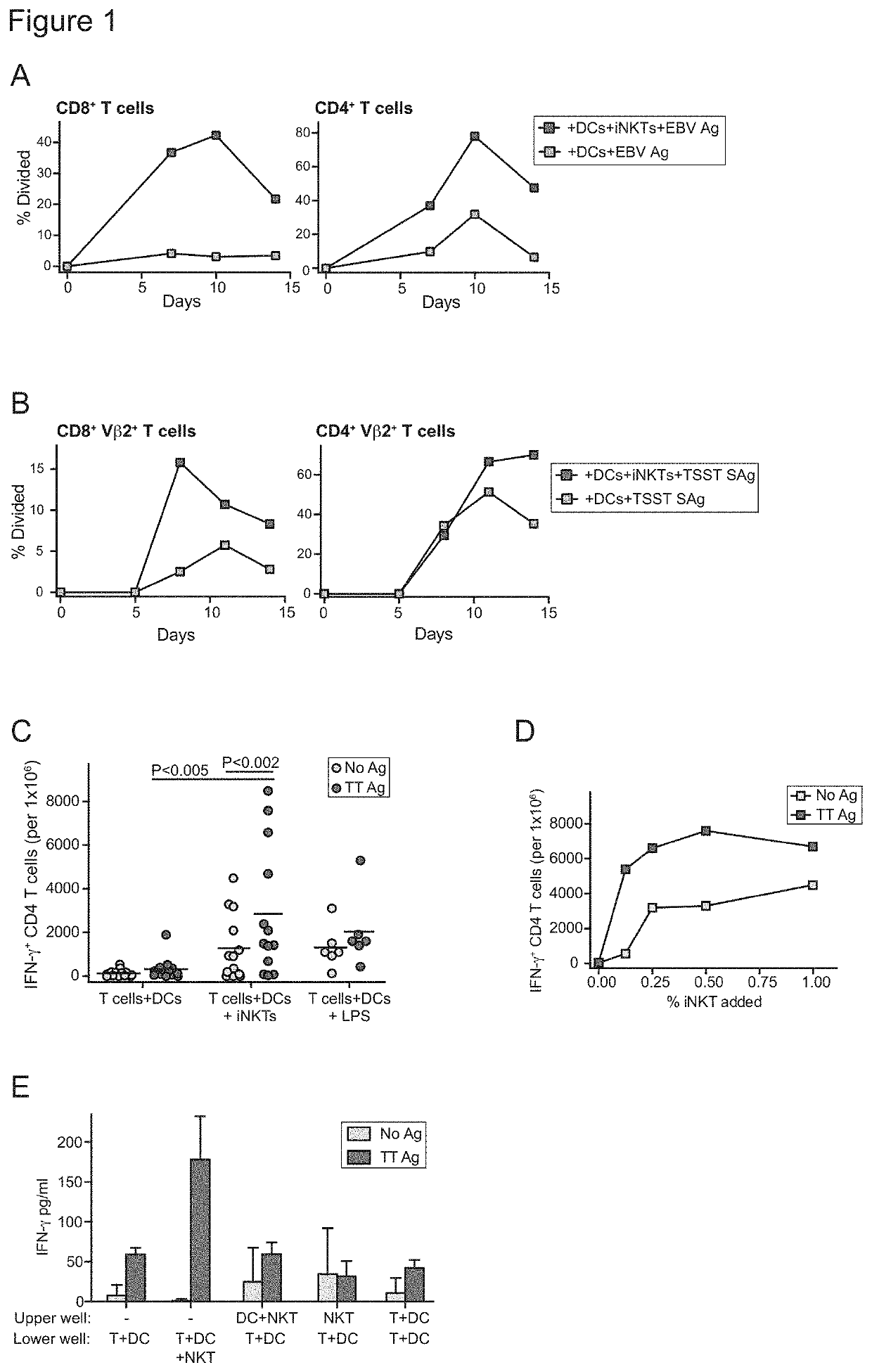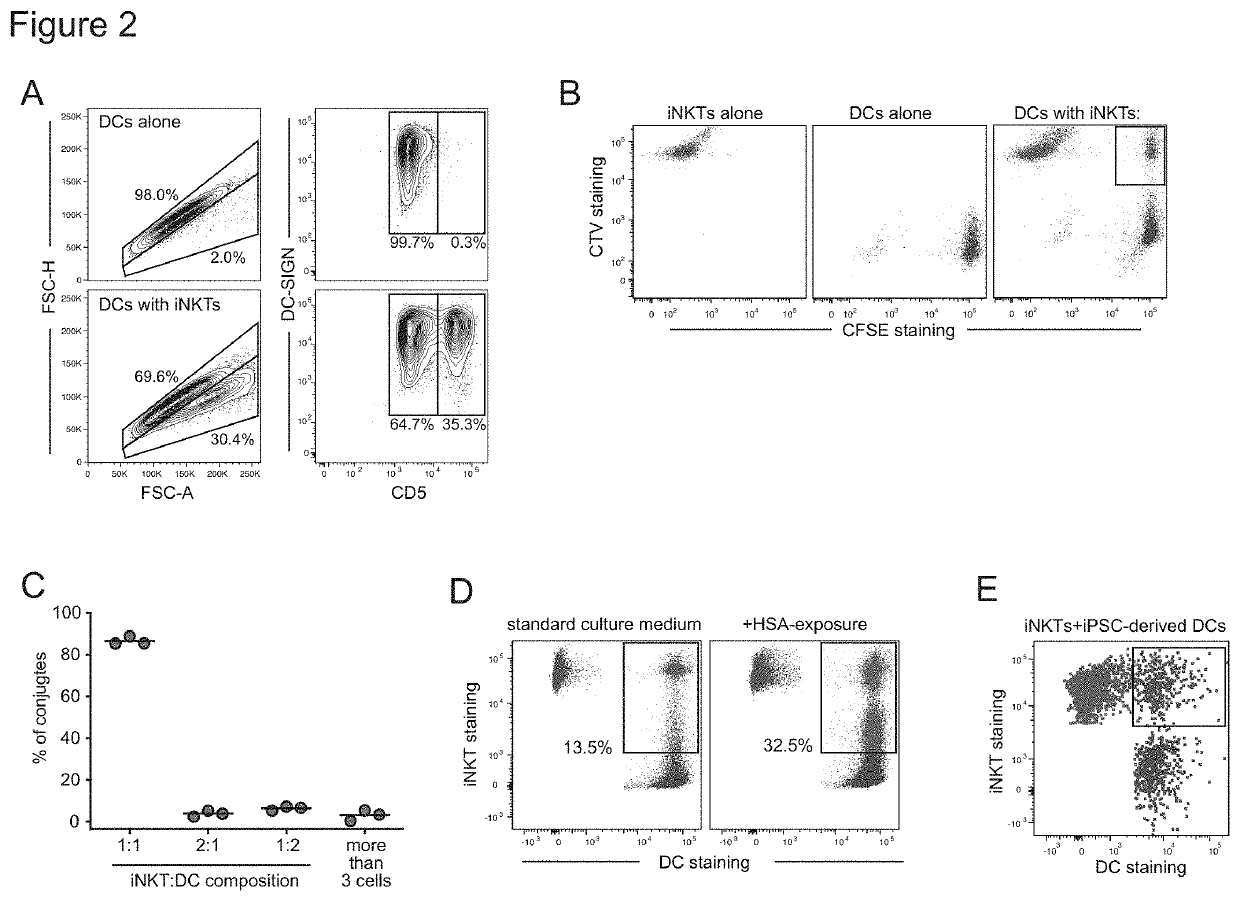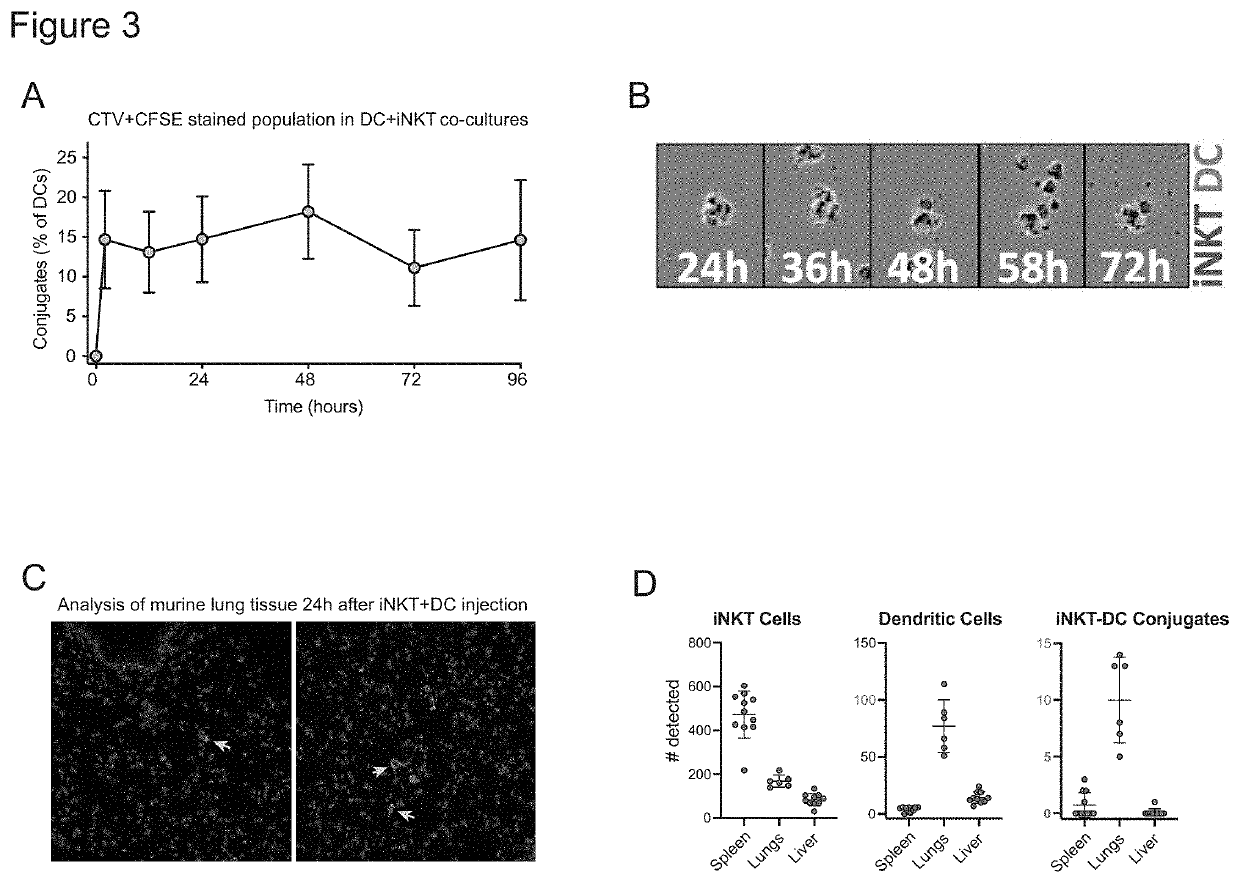Multicell conjugates for activating antigen-specific t cell responses
a multi-cell conjugate and antigen-specific technology, applied in the field of multi-cell conjugates for activating antigen-specific t cell responses, can solve the problems of inconvenient use, cumbersome and time-consuming car-t treatment, and mixed clinical trials of checkpoint inhibitor therapies
- Summary
- Abstract
- Description
- Claims
- Application Information
AI Technical Summary
Benefits of technology
Problems solved by technology
Method used
Image
Examples
example 1
[0113]We have found that in the presence of DCs, invariant natural killer T cells (iNKT cells) can promote the activation of antigen-specific T cells by dendritic cells (DCs) loaded with an antigen. CD4+ iNKT cells were sorted from peripheral blood of a healthy adult subject and expanded in vitro to generate a highly pure culture. DCs were derived from monocytes isolated from peripheral blood samples drawn from healthy adult subjects, who were not genetically related to the iNKT cell donor (i.e. allogeneic to the iNKT cells). DCs were co-incubated with a 1:1 ratio of iNKT cells to allow the formation of conjugates, or were cultured alone. Cultures containing iNKT-DC conjugates or DCs alone were co-incubated with antigens, including Epstein-Barr virus (EBV Ag), Toxic Shock Syndrome Toxin superantigen (TSST SAg), or tetanus toxoid antigen (TT Ag), or were mock-treated (No Ag). They were then co-cultured with T cells that were autologous to the DCs, such that the DCs comprised 2% of th...
PUM
| Property | Measurement | Unit |
|---|---|---|
| concentration | aaaaa | aaaaa |
| concentration | aaaaa | aaaaa |
| time | aaaaa | aaaaa |
Abstract
Description
Claims
Application Information
 Login to View More
Login to View More - R&D
- Intellectual Property
- Life Sciences
- Materials
- Tech Scout
- Unparalleled Data Quality
- Higher Quality Content
- 60% Fewer Hallucinations
Browse by: Latest US Patents, China's latest patents, Technical Efficacy Thesaurus, Application Domain, Technology Topic, Popular Technical Reports.
© 2025 PatSnap. All rights reserved.Legal|Privacy policy|Modern Slavery Act Transparency Statement|Sitemap|About US| Contact US: help@patsnap.com



